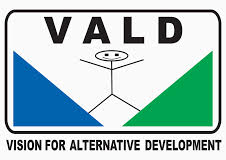At a Consultative Forum with Civil Society Organizations held on 8th February 2023 at the Miklin Hotel Accra, the resource person Mr. Issah Ali, Executive Director of Vision for Alternative Development (VALD) highlighted on the concept of Tobacco Endgame. He shed light on its effective strategies, global best practices, the opportunities available to Ghana and other areas of reflection.
On the Concept of Tobacco Endgame, Mr. Ali highlighted that Tobacco Endgame is a reorientation or refocusing of discussions away from Tobacco Control towards ending tobacco epidemic and nicotine addiction. He mentioned that Tobacco Endgame is envisioned to achieving a tobacco-free generation. Mr. Ali opined that the broad elements of the Tobacco Endgame strategy are – having an explicit government commitment and plan to achieve close to zero prevalence of tobacco use; and having a clearly stated government ‘end’ target date within a maximum of two decades.
Mr. Ali added that some endgame effective strategies include – the restriction of sales of tobacco by birth year; Changing tobacco product characteristics by reducing nicotine content to make tobacco products non addictive and having 100% smoke free public spaces. Some of the strategies as alluded to by Mr. Ali includes – prohibition of movie placements, equipping tobacco farms to switch to other crops. Some measures include restricting availability by widening the gap among vendors in a locality as well as regulating time of sale.

At the Forum Mr. Ali mentioned that the New Zealand government has adopted the aspirational goal of reducing smoking prevalence and tobacco availability to minimal levels, thereby on course to making New Zealand essentially a smoke-free nation. The Finnish government has also adopted stringent measures in achieving the objective of ending ‘the use of tobacco products within reasonable time. The experience of the Bhutanese government is worth noting as they have passed laws aimed at ending the sale of tobacco. He did not also leave out the US government issuing a report with a ‘vision of a society free from tobacco-related death and disease’. These are all global best practices that can be emulated by the Ghanaian government.
As part of the forum, participants during group sessions brainstormed on possible negative repercussions of prohibiting the sale of all tobacco products, challenges in achieving the endgame policy, resources needed for endgame campaign and target timeline. Participants made a wide range of recommendations including the need for a review of the tobacco laws in Ghana to include endgame elements, Assessment and analysis on possible loss of government revenue and smuggling of tobacco products.
Participants at the Forum includes representatives of the Women and Children Network Development Foundation (WCNDF), Institute of Leadership and Development (INSLA), Stroke Association Network Ghana, Ghana Coalition NGO’s in Health (GCNH), Consumer Protection Agency (CPA), Coalition of NGOs in Tobacco Control (CNTC), Federation of Youth Clubs (FYC), Ghana Muslim Mission (GMM) and Action for Integrated Development (AID).




